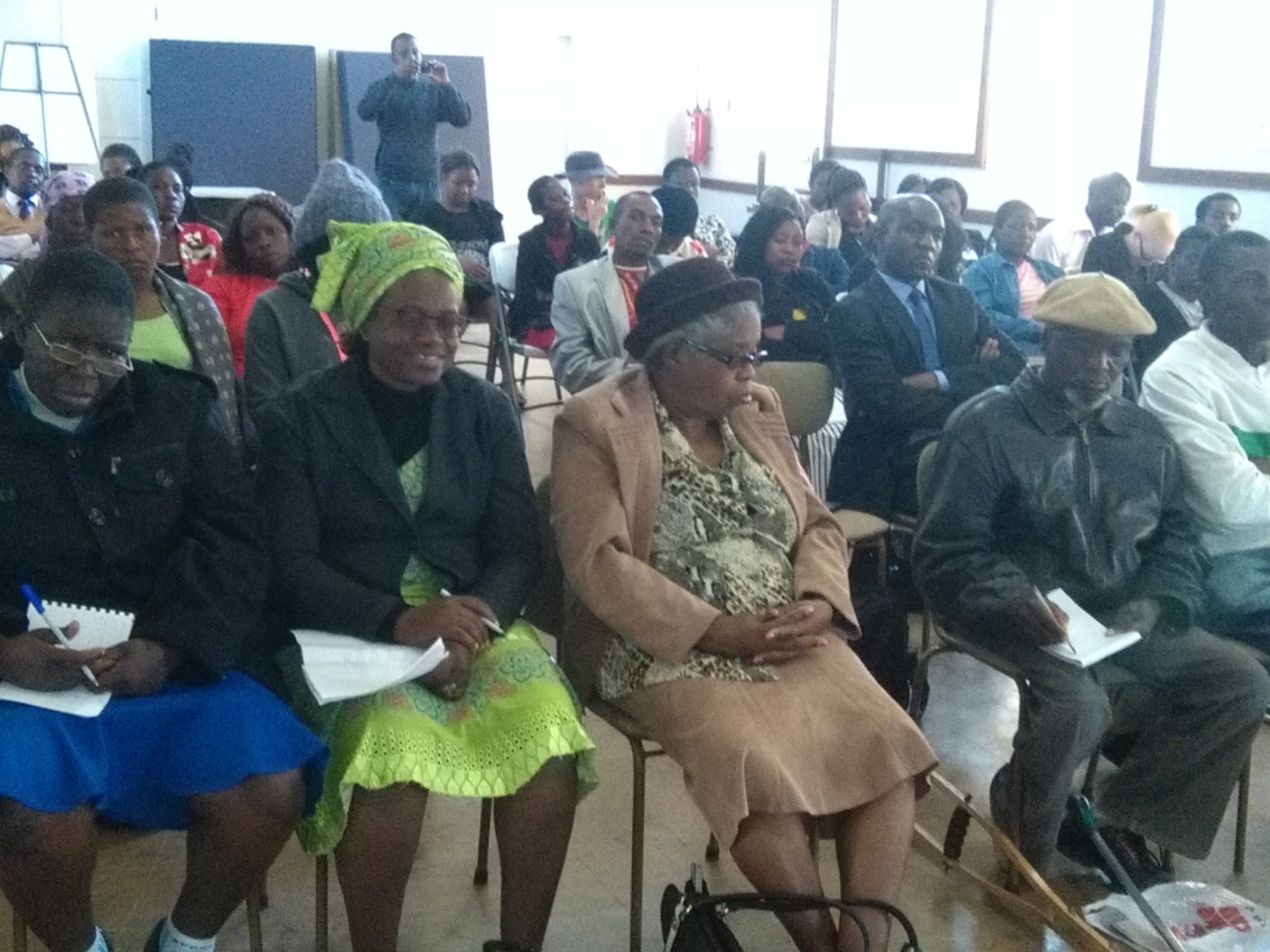By Patricia Mashiri and Byron Mutingwende
In an effort to promote financial inclusion among people with disabilities (PWDs) and afford them quality health services, the Reserve Bank of Zimbabwe (RBZ), the Adult Rape Clinic (ARC) and Miracle Missions partnered to capacitate this excluded group.
In her speech at the networking meeting with PWDs held at the Presbyterian Church in Highlands on 8 August 2017, Norah Mukura, the Deputy Director – Bank Supervision at the RBZ said the central bank is implementing the national financial inclusion strategy targeting the financially excluded groups. At the same the time the banks must support small to medium enterprises (MSMEs) markets by these people.
“The RBZ National Financial Inclusion Strategy targets all groups of people with low financial inclusion including PWDs, SMEs, women and youths. We have identified various working groups to spearhead the initiative. I am pleased to say that we have set aside $5m earmarked for People with disabilities,” Mukura said.
Mukura said that through the PWDs thematic working group, the RBZ will continue to engage banks and other financial service providers to promote access to financial services by PWDs including advocating for appropriate infrastructure and products for PWDs. The RBZ pledged to continue to urge banks to design products that meet the needs of marginalized segments to ensure that financial services are extended to all the targeted segments.
She added that the RBZ, in conjunction with other stakeholders, is developing MSMEs finance policy and PWDs to open individual bank accounts at low costs.
It also emerged that people with disabilities are often ill-treated and face challenges in accessing cash for medication because of long bank queues. One of the participants complained that some of them are sent foreign currency from abroad but the local banks offer them bonds notes, making it difficult to procure essential medication from other countries.
To improve financial inclusion, the RBZ launched several empowerment facilities among them the horticulture fund, women’s empowerment fund, gold development facility and the fund for PWDs.
According to recent statistics from the RBZ, there is a high level of financial exclusion. For the banking sector it stands at 70%, mobile money is at 55%, borrowing is at 58 % while financial exclusion for capital markets stands at 99%. According to the 2012 Census, there are 817 643 PWDs in Zimbabwe.
According to the Adult Rape Clinic, people with disabilities are also prone to rape. The Adult Rape Clinic offers free help both men and women starting from the age of 11.
Phephisiwe Muranda an official from the Adult Rape Clinic said the clinic offers psycho social support; testing for HIV and STIs and pregnancy tests to victims of rape. Victims are referred to more qualified practitioners for emergency contraceptive pills (EMP) and medical examination.
Jacqueline Anderson, a Trustee of Miracle missions paid tribute to the RBZ for making inroads towards improving the financial inclusion of PWDs. Her counterpart, Samantha Sibanda said financial services should be accessible to everyone including PWDs and bemoaned the situation whereby people with visual impairments and those hard of hearing often find it hard to access money in banks if someone does not accompany them.
Among other financial inclusion policy pronouncements, banks are supposed to submit board-approved financial inclusion plans and progress reports to the RBZ; submit financial inclusion statistics on a quarterly basis since 2016; lend to the agriculture sector (minimum 20%); and maximum interest rate of 12% per annum for productive lending.






